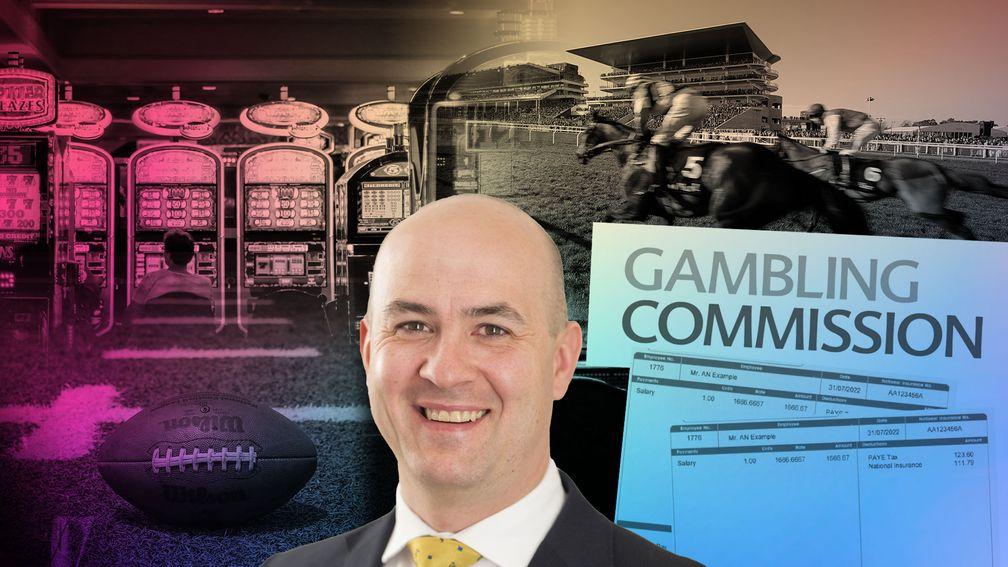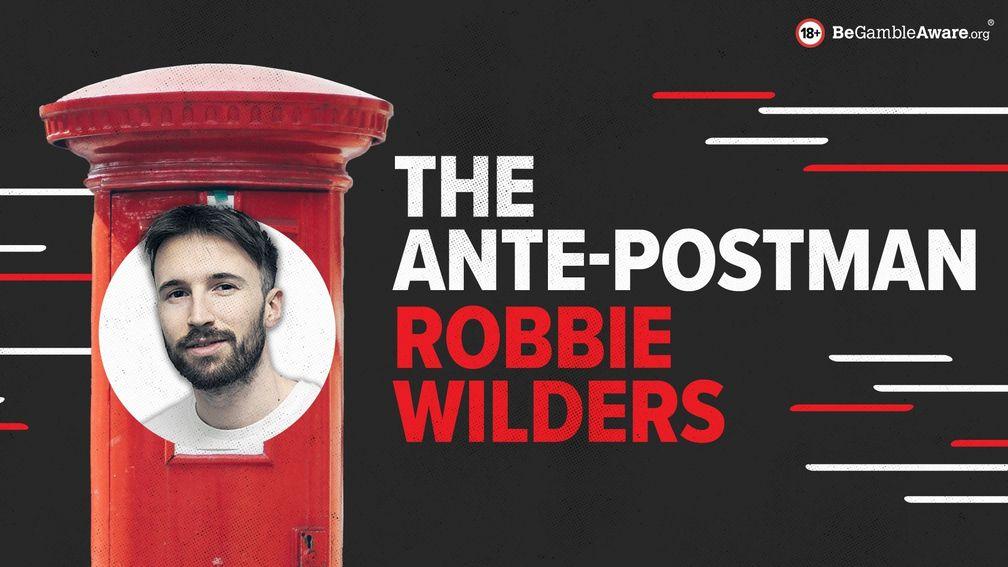- More
Once toothless, now baring fangs - but is the Gambling Commission fit for purpose?

The Gambling Commission had to be sharply reminded of the scope of its role in January when Paul Scully, then the UK minister responsible for gambling, said it was not the regulator's duty to decide how much people could afford to bet.
It was the latest in a series of blows for the unelected body, which has come in for withering criticism after creating a regulatory environment whereby bookmakers who fail to implement deeply unpopular affordability checks could be hit with huge fines.
Amid the limbo caused by the delayed gambling review white paper, the commission has been accused of acting well beyond its remit, prioritising a public health agenda at the expense of tens of thousands of punters now forced to provide sensitive financial information before being allowed to spend their money as they see fit.
No-one would deny that the once toothless body has grown some impressive fangs in recent years, with a series of multi-million-pound penalties for regulatory failings showing it means business, but whether it is meeting its duty to ensure "gambling is fair and safe" for all is another question.
Many ordinary, responsible punters feel they get a raw deal from the commission. As well as overseeing the introduction of affordability checks, it has an inglorious history of failing to protect customers from rogue or unstable firms, most recently highlighted by the collapse of Football Index, which had £124 million in open bets before it went into administration in 2021.
In recent years, the regulator has also come under fire over its competence and lack of transparency. It has been described as "not fit for purpose" by both the all-party parliamentary group for gambling-related harm and the all-party group for betting and gaming, representing a rare full house of criticism from both ends of the political spectrum.
Yet it has been suggested that when the white paper finally appears, many of the tougher decisions – such as how to implement affordability checks – will be devolved to the commission to work out. As such, the future of the betting industry, and by implication the future of racing, may hinge on whether it acts as a dispassionate market regulator or crusading moral guardian.
'It appears to have developed a moral antagonism to betting'
The Gambling Commission, an administrative body overseen by the Department for Culture, Media and Sport, was established under the 2005 Gambling Act and replaced the Gaming Board as the industry regulator in 2007. Its role is to pursue three licensing objectives all operators must also follow: to prevent gambling from being a source of crime, to protect children and vulnerable people from harm, and to ensure gambling is conducted in a fair and open way.
However, in the vacuum created by the absence of an updated legislative framework from the government, the commission has been accused of positioning itself as more of a public health body than a regulator, allegedly too preoccupied with the perceived unpopularity of gambling to constructively engage with firms.
Andrew Rhodes was appointed as permanent chief executive last May and in a speech to betting chief executives the following November he offered hope of a balanced approach, stating an aspiration to "be the trusted voice on gambling, as an impartial regulator" and "not to make a moral judgement on how much money is spent on gambling".
Yet according to Dan Waugh, a partner at global strategic advisory business Regulus Partners, that has not been the case. "As an institution, the Gambling Commission appears to have developed a moral antagonism to betting as a pastime; surrounding itself with public health activists, distancing itself from licensees and showing little interest in the rights of recreational punters," says Waugh.
Waugh argues the commission sets too low a bar for gambling-related harm – it has even listed reduced cinema attendance as a potential red flag – and says it prefers "tilting at public health windmills" to effectively regulating the market.
He points to a lack of domain knowledge, and says: "The commission has repeatedly misrepresented research findings in support of its agenda of market reform. It has shown a willingness to accept uncritically the claims of public health or anti-gambling activists – even when these have been shown to be false."
One industry veteran who has held senior positions for more than 20 years and asked not to be named, agrees with Waugh, adding: "The commission doesn't really understand or frequently connect with everyday punters and appears to view them as needing saving from themselves, rather than enjoying a leisure pursuit.
"I believe that's what has led to examples of regulatory overreach. Some of it is well intentioned. Everybody in the betting industry wants more protection for extreme cases and mistakes have been made, but you can always go too far."
Nick Rust, who was a senior executive at Ladbrokes, Coral and Sky Bet before serving as chief executive of the BHA between 2015 and 2020, has some sympathy for the position in which the Gambling Commission has been placed by politicians. He feels it has adopted a cautious approach after being tasked with combating problem gambling without clearer guidance.
"There's a big gap between what the 2005 Gambling Act says and what politicians, the public and media want to happen now," says Rust. "It has tried to steer a course that helps minimise risk in terms of problem gambling but human nature and perhaps a lack of full understanding of the market means it has taken quite a cautious approach, which has seemingly resulted in a push towards affordability checks as a default.
"They cannot be justified as the default position – they are only acceptable when betting operators consider their responsibilities under the Proceeds of Crime Act, anti-money laundering regulation or where there are clear concerns about potential player harm."
However, these controversial checks, which involve customers being asked to prove they can afford a certain level of activity by providing financial documents such as payslips and bank statements, have been haphazardly implemented by operators.
Contacted by the Racing Post this week, a Gambling Commission spokesperson reiterated its chief executive's claim that it was "nonsense" to say the regulator was pressuring firms to impose intrusive affordability checks. The body maintained that it requires firms to have "effective systems in place" to identify risk and take "proportionate action to reduce harm" but said it has not detailed exact thresholds at which checks should be carried out because an unusual pattern of spending that may cause concern could vary by operator and product.
The commission added that it plans to consult on minimum standards that must be applied and explore how "frictionless checks" could be conducted, while it also stressed that only a "very small percentage" of people spending significantly above the norm should face checks and highlighted the importance of a "proper open debate about the right balance between customer freedom and protecting the most vulnerable".
Yet despite those claims that very few bettors should face checks, one in six Racing Post readers surveyed this year reported already being confronted by their bookmaker with demands for financial documents. According to betting industry insiders, this widespread adoption of affordability checks is a direct consequence of Gambling Commission enforcement action.
"A system of regulation by coercion has emerged in recent years, with enforcement teams bullying operators into adopting very low thresholds for the point at which they ask for documents," says one industry observer. "It's entirely opaque and has resulted in confusion and frustration for bookmakers and customers alike."
Another gambling specialist with knowledge of the racing industry says the one thing the commission must do is to "spell out what it expects of people", adding: "It's a maddening body that needs half a dozen people who regularly bet to work there. It doesn't have an easy task but it needs to properly understand the implications of what it does."
The ramifications of low-level affordability checks are already being felt by thousands of responsible punters, many of whose stories have been told in the Racing Post. The majority have refused to provide the personal information being sought, while a significant minority have drifted towards the unregulated black market (a recent Racing Post punting survey found almost 15 per cent of respondents had bet with or knew someone who bet with black market firms in the last 12 months).

"On all things the Gambling Commission does, there are vague guidelines," says professional gambler Neil Channing. "People who don't like sending information [to bookmakers] are going to go from firm to firm, eventually run out and go to the black market. I would like the commission to realise its remit is not only to protect vulnerable people from gambling harm. It's an important part of its role but it's not the only part. They need to realise the majority of punters are not affected by these things."
'It should be laid out in law that open bets have to stand'
The regulator has undoubtedly been proactive in protecting vulnerable people and has ramped up its punishment for operators found to have broken the rules around interactions with problem gamblers and anti-money laundering conditions, such as the £17m fine handed out to Entain, owner of Ladbrokes and Coral, in August. However, it has adopted a far more passive approach when it comes to the protection offered to consumers' funds, which is left entirely in the hands of operators.
Firms can opt to offer 'high' protection, meaning customer deposits are fully and legally ringfenced from administrators if firms stop trading; 'medium' protection, which often includes an insurance policy to cover money but with no guarantee it will all be returned; and finally 'no protection', meaning administrators can treat deposits as company assets and customers are unlikely to get anything back.
The commission has explained that it allows many firms, mostly but not exclusively at the smaller end of the market, to exert some ownership over deposits because it believes mandatory 'high' protection could be a barrier to entry into the market.
That means punters are at the mercy of their bookmaker's customer funds policy, and there is a question mark over the degree to which customers are aware their money could disappear in the event of insolvency. The commission has said consumers have enough information to make an informed choice but those details are often buried within lengthy terms and conditions.
"It should be laid out in law that if there are any open bets they have to stand. You can't just opt out of paying them and all the money deposited should be totally ring fenced. That should be a basic requirement," says Channing.
This issue came to the fore following the collapse of Football Index, which left thousands of customers out of pocket. The platform was launched in 2015 and allowed users to buy what it described as "shares" in leading players. After an extensive marketing campaign, which included adverts at Premier League matches, the company claimed there were 500,000 active accounts investing on the site.
The commission investigated a range of issues concerning Football Index's parent company BetIndex from 2018 onwards but stressed its early compliance issues did not relate to its financial viability. In May 2019, the commission contacted the Financial Conduct Authority (FCA), which oversees investment products, about the prospect of dual regulation but in March 2021, the issue was still unresolved.

The Guardian has reported that the regulator knew about the unsustainability of the platform in January 2020, eight months before the first in a series of market crashes, when a document authored by an individual with extensive experience in the sector was sent to the commission.
It is said to have spelled out the view that Football Index's deliberate imitation of an investment product had "led to unparalleled levels of irresponsible gambling behaviours". It estimated that the company's liabilities exceeded £1m per month, and that it would soon be unable to meet them if user growth stopped.
However, the regulator only suspended the licence when parent company BetIndex entered administration in March 2021, which the commission argued was the "first point at which there was sufficient evidence to demonstrate that suspension was necessary". The liquidation process is ongoing but only a minimal sum is expected to be returned to customers.
DCMS investigated the role of the commission in the failure of the platform and an independent review found the regulator had not been properly informed of the true nature of the product but had been too slow to react to concerns raised about the platform.
A spokesperson for campaign group Football Index Action said: "The Gambling Commission licensed a product it failed to understand, ignored or failed to act upon information provided to them by the operator regarding the true nature of the product and when they finally decided to act in May 2019 still allowed tens of millions of deposits into a product that had a dangerously flawed financial model."
Regulus analyst Waugh adds: "Everyone knew this tiered system of fund protection was prone to problems. The commission was warned it might happen and it did. Distracted by a moral crusade to impose ever greater restrictions on betting customers, it failed in its basic job – to ensure the effective functioning of a sustainable and responsible market in the best interests of all consumers."
Widespread concerns despite commission's denials
There are significant concerns within the racing and betting industries at the Gambling Commission's apparent desire to place itself as more of a public health body than a regulator.
The commission rejected those accusations this week, but its low bar for gambling-related harm, failure to engage with everyday punters and willingness to accept uncritically the claims of public health or anti-gambling activists are all cited as evidence of what Waugh called its “moral antagonism” to betting as a leisure pursuit.
The regulator also denied it lacked knowledge of the betting industry, but the collapse of Football Index, following what critics claim was the Gambling Commission’s failure to understand the product, and its passive approach to the protection of customers' funds have been cited as evidence it would benefit from more gambling expertise and a greater focus on protecting the vast majority of consumers for whom the biggest danger inherent to betting is their bookmaker going bust.
A more constructive dialogue with the industry would also help in this regard according to the industry veteran we spoke to. "That doesn't mean you believe all that bookmakers tell you," they added. "It involves a sharing of data and a common desire to reduce problem gambling without thinking the industry is the enemy, rather a partner in that; somebody the regulator can work constructively with."
Most worrying of all for the racing and betting industries, the Gambling Commission is failing to get the balance right on affordability checks, seemingly prioritising its well-intentioned objective of protecting vulnerable people at the expense of thousands of recreational punters, who have been caught up in their droves and whose loud complaints have thus far fallen on the deafest of ears.
Read more:
Out-of-control Gambling Commission is either clueless or treating us with contempt
Gambling Commission denies mandating the affordability checks blighting punters
The Big Punting Survey: one in six have already been hit with affordability checks
The Big Punting Survey: revealing racing's 'Radio 4 problem'

Sign up to receive The Ante-Postman, Robbie Wilders' top weekly newsletter. Get weekend tips, festival fancies and big-race selections delivered straight to your inbox.
Published on inSpecial reports
Last updated
- Skyscraper betting and soaring turnover: Japan's mind-boggling racing experience and the unlikely hero who sparked the boom
- It’s the number-one complaint from punters – so just why are some struggling to get paid out by bookmakers?
- A laid-back Equinox, a heaving toy shop and a bizarre mobile racing game: inside the phenomenon that is Japanese racing
- 'The status quo just isn't sustainable' - does British racing need a revolution in how it is run?
- 'We have constipation at the centre of British racing' - is the sport's governance structure fit for purpose?
- Skyscraper betting and soaring turnover: Japan's mind-boggling racing experience and the unlikely hero who sparked the boom
- It’s the number-one complaint from punters – so just why are some struggling to get paid out by bookmakers?
- A laid-back Equinox, a heaving toy shop and a bizarre mobile racing game: inside the phenomenon that is Japanese racing
- 'The status quo just isn't sustainable' - does British racing need a revolution in how it is run?
- 'We have constipation at the centre of British racing' - is the sport's governance structure fit for purpose?
